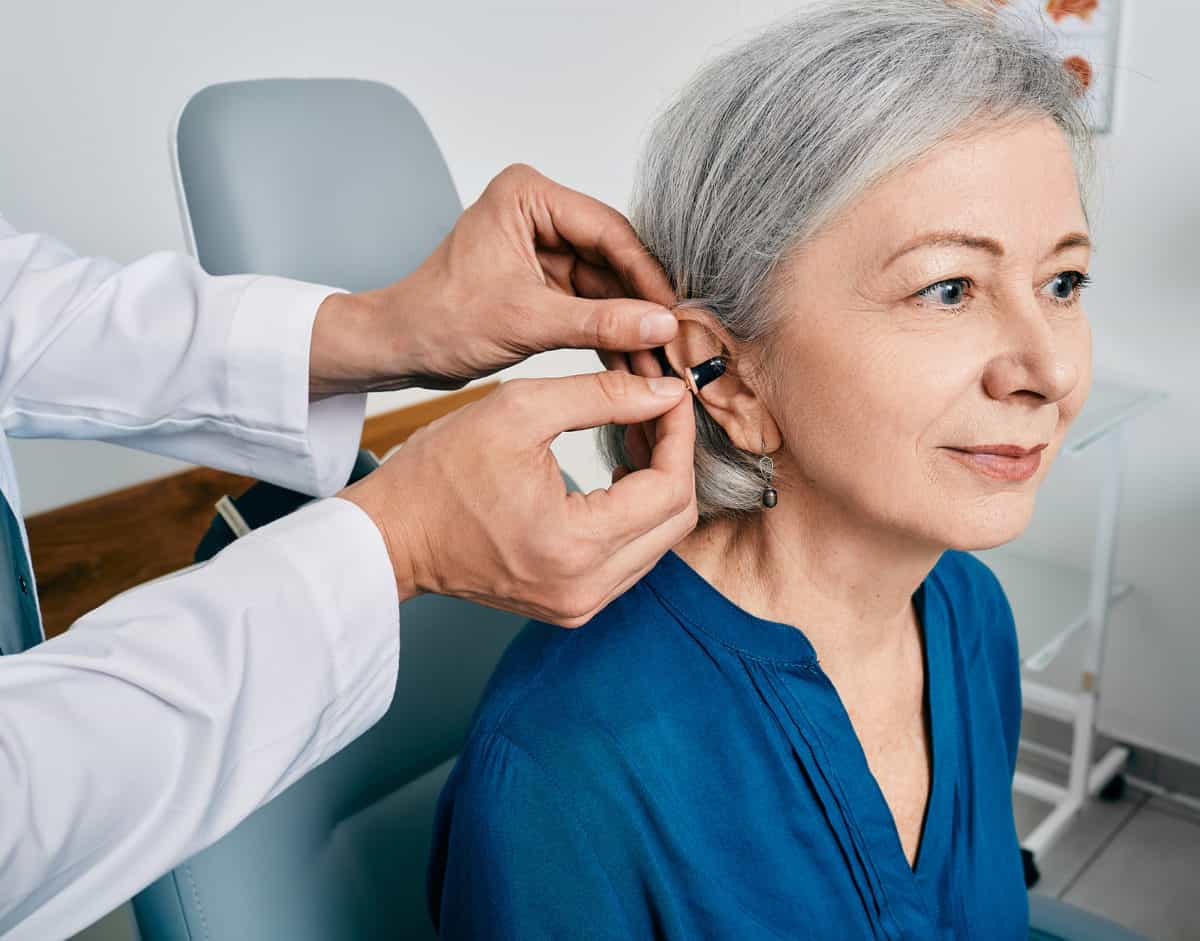- Volunteering for Hearing Health Causes - May 27, 2025
- Questions to Ask During Your Hearing Health Appointment - May 16, 2025
- Exploring Alternative Therapies for Hearing Loss - May 6, 2025
Hearing loss is linked to increased heart disease and diabetes rates and has significantly contributed to depression, anxiety, and social isolation. Hearing loss is also connected to dementia and Alzheimer’s disease. You can’t fully understand the impact of hearing loss until you understand how hearing issues affect your total health.
September is World Alzheimer’s Month which helps build a campaign of education and awareness around Alzheimer’s disease while pushing research and medical work towards finding a cure. It’s a great time to deepen your understanding of Alzheimer’s and the connection between hearing loss and dementia.
An unexpected relationship
The health link between hearing loss and Alzheimer’s disease is not intuitive for most people. However, long-term medical research finds that the two conditions are closely linked. Well-regarded data from large-scale studies conducted in Britain, Germany, and Taiwan demonstrate that people with untreated hearing loss are 1.2 and 1.4 times more likely to develop dementia as they age.
When outlining conditions that significantly contribute to the risk of Alzheimer’s disease and other forms of dementia, nine major health factors usually come into consideration. Some of the conditions reflect social factors – people whose formal education ended before they were teenagers and people experiencing social isolation increase their risk of cognitive issues.
Doctors also warn that hypertension and obesity contribute to risk, especially when they develop midlife. Depression, especially late in life, has also increased risk. A few factors, including smoking, lack of exercise, diabetes, and untreated hearing loss, impact your cognitive health at any age.
Understanding the link
Hearing loss harms our cognitive functioning and is vital to grasp, and it is rooted in how we hear. While the ear contains tiny sensory cells that detect the presence of sound waves, the work of translating sound waves into meaning occurs once the sound signals have been transmitted to the brain.
Most permanent hearing loss begins when damage occurs to the inner ear. The sensory hair cells in the ears’ cochlea detect the presence of sound and transmit sound signals to the auditory nerve. Hair cells do not repair or replace themselves when damaged, so an injured hair cell is essentially taken out of commission. Each small, broken hair cell that can no longer gather sound creates a tiny gap in the way we hear. When many hair cells are damaged, we experience significant hearing loss.
As a result of hearing loss, the processing of sound in the brain changes in several ways; less incoming sound detected means fewer sound signals are being sent to the brain to be processed. The sound signals that come through the auditory nerve will be missing pieces, making them harder to interpret.
First, new neural pathways are established in the auditory nerve. As we learn to hear as infants, familiar pathways are formed for common sounds to help us recognize and respond to noises we know. When hearing loss is present, the brain has to piece together once familiar sounds and speech. Well-established neural pathways are no longer effective, and the brain creates new routes for sound signals to help make comprehension easier.
Second, the brain has to draw more cognitive resources away from other tasks to help interpret sound. The mind prioritizes sound signals, and when they are difficult to understand, our attention and focus are drawn away from our other senses and thoughts to help put together each incoming audio puzzle. Cognitive strain depletes our energy and detracts from our overall functioning. Not only that, the constant cognitive challenges posed by untreated hearing loss are thought to create conditions that encourage the development of Alzheimer’s disease.
Hearing loss treatment can keep you sharp
Reducing your risk of Alzheimer’s includes a multi-faceted approach to your health. There’s good news for people with hearing loss: treating hearing loss with hearing aids can significantly reduce your risk of cognitive decline and alleviates much of the strain hearing loss places on the brain’s functioning.
Worried about your hearing health? We can help. We offer expert care – from hearing testing to finding the perfect hearing solution. We know how vital lifelong healthy hearing is, so set up an appointment today.

